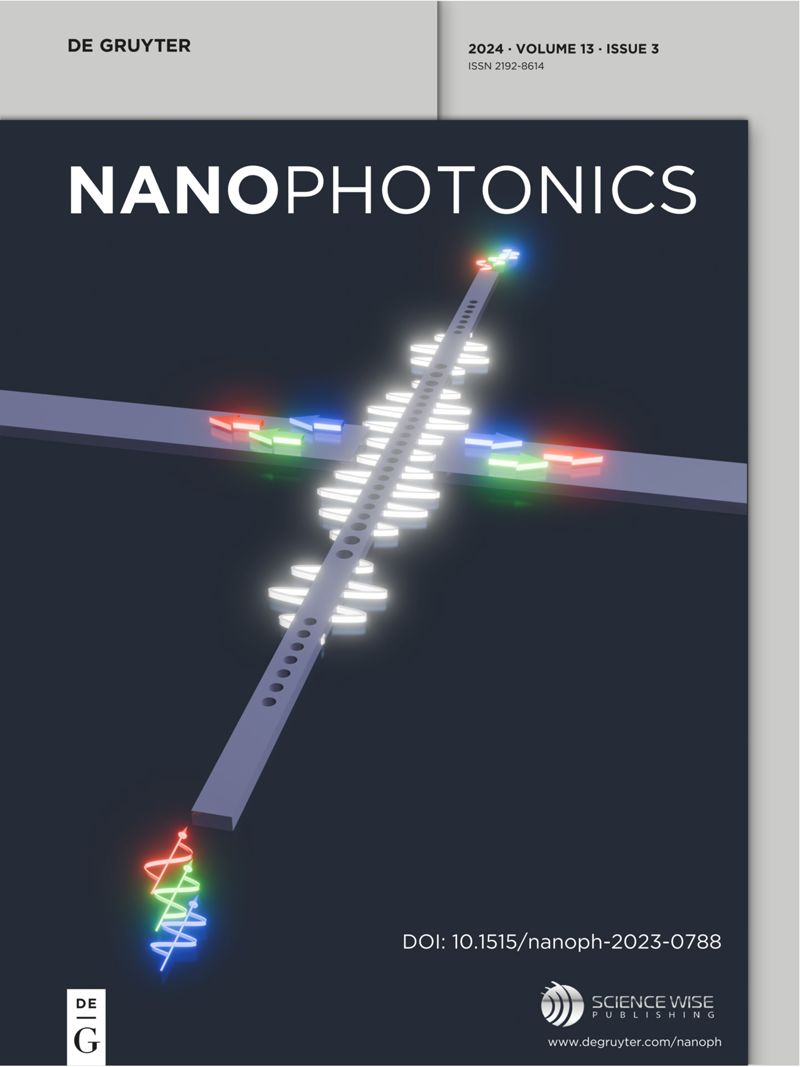DeepQR:用于光学基因表达分析的单分子 QR 码
IF 6.5
2区 物理与天体物理
Q1 MATERIALS SCIENCE, MULTIDISCIPLINARY
引用次数: 0
摘要
光学成像和单分子成像尤其利用荧光标签来通过颜色区分观察到的物种。颜色复用的程度取决于可用的光谱检测窗口以及在此窗口内区分不同颜色荧光团的能力。因此,大多数单分子成像技术都依赖于两到四种颜色进行复用。DeepQR 将紧凑型光谱成像与深度学习相结合,只需 3 个光谱检测窗口即可实现 4 色采集。它可以快速高通量地采集和解码数百种独特的单分子颜色组合,并将其应用于标记本地 RNA 靶标。我们用 NanoString 基因表达炎症面板和商用 NanoString nCounter 系统分析的临床样本验证了我们的方法。结果表明,我们的方法与 "黄金标准 "滤光片成像法高度一致,而且通过使用单张快照记录四色条形码,采集时间缩短了四倍多。这种新方法为实现极端单分子复用铺平了道路。本文章由计算机程序翻译,如有差异,请以英文原文为准。
DeepQR: single-molecule QR codes for optical gene-expression analysis
Optical imaging and single-molecule imaging, in particular, utilize fluorescent tags in order to differentiate observed species by color. The degree of color multiplexing is dependent on the available spectral detection window and the ability to distinguish between fluorophores of different colors within this window. Consequently, most single-molecule imaging techniques rely on two to four colors for multiplexing. DeepQR combines compact spectral imaging with deep learning to enable 4 color acquisition with only 3 spectral detection windows. It allows rapid high-throughput acquisition and decoding of hundreds of unique single-molecule color combinations applied here to tag native RNA targets. We validate our method with clinical samples analyzed with the NanoString gene-expression inflammation panel side by side with the commercially available NanoString nCounter system. We demonstrate high concordance with “gold-standard” filter-based imaging and over a four-fold decrease in acquisition time by applying a single snapshot to record four-color barcodes. The new approach paves the path for extreme single-molecule multiplexing.
求助全文
通过发布文献求助,成功后即可免费获取论文全文。
去求助
来源期刊

Nanophotonics
NANOSCIENCE & NANOTECHNOLOGY-MATERIALS SCIENCE, MULTIDISCIPLINARY
CiteScore
13.50
自引率
6.70%
发文量
358
审稿时长
7 weeks
期刊介绍:
Nanophotonics, published in collaboration with Sciencewise, is a prestigious journal that showcases recent international research results, notable advancements in the field, and innovative applications. It is regarded as one of the leading publications in the realm of nanophotonics and encompasses a range of article types including research articles, selectively invited reviews, letters, and perspectives.
The journal specifically delves into the study of photon interaction with nano-structures, such as carbon nano-tubes, nano metal particles, nano crystals, semiconductor nano dots, photonic crystals, tissue, and DNA. It offers comprehensive coverage of the most up-to-date discoveries, making it an essential resource for physicists, engineers, and material scientists.
 求助内容:
求助内容: 应助结果提醒方式:
应助结果提醒方式:


